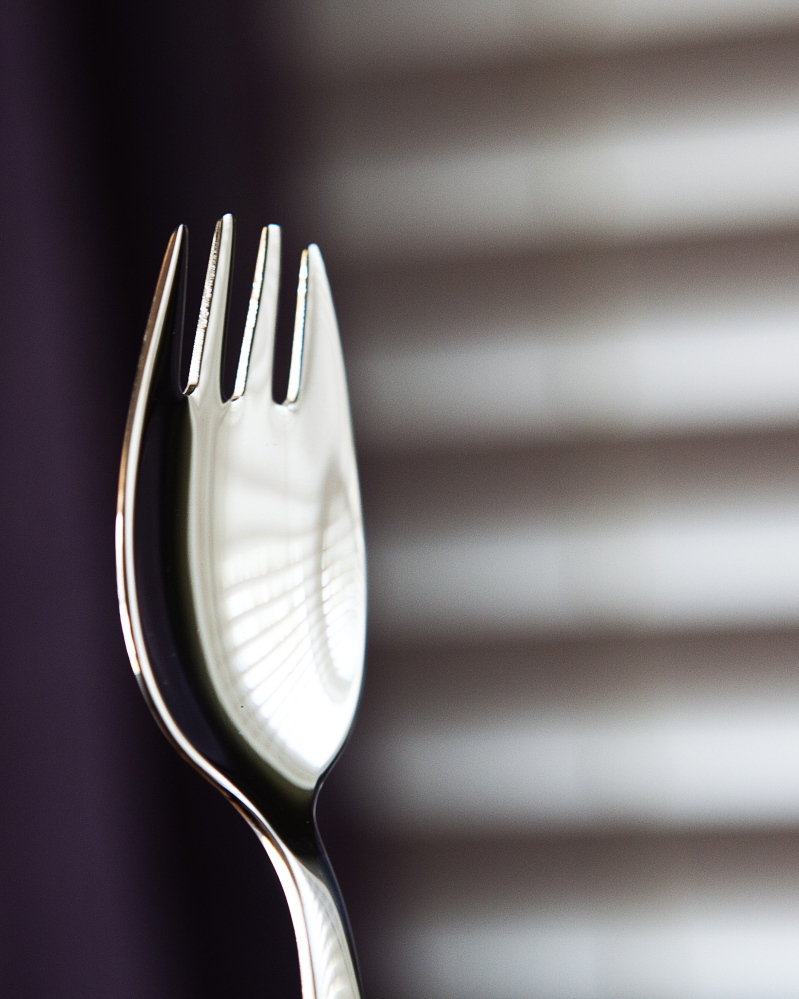Someday I will lead the life of leisure that I fantasize about when I am on deadline; I’ll have plenty of time to read novels, climb mountains, visit stylish European capitals and regularly eat home-cooked meals at a well-set table and in good company. Until that time (hey, a girl can dream), I am often eating on the run, in my car or at my desk, buying bowls of soup and burritos catch as catch can. Which is why I keep a spork – a combination spoon-fork – in my desk drawer, a second one in my car, and I probably ought to carry one in my pocketbook and bicycle bag, too. They weigh nearly nothing. They take almost no space. They don’t cost a lot. They come in groovy colors. Plus many sporks come with a serrated edge on the outside fork tine, effectively making them knives, too.
By the time I wash these sporks in soapy hot water, am I using as many resources (energy, water) as if I used and threw away plastic disposable forks, knives and spoons every day? The answers to such questions are mighty difficult to calculate. But the plastic utensils are made from petroleum, can take a long time to decompose (and then leach toxics) and they often come in sets of three (wrapped in plastic or – worse? – individually wrapped in plastic) as opposed to my uni-tool spork. So until a chemistry or environmental expert tells me otherwise, I’m thinking the spork is the better deal for the planet.
About six years ago, France considered a “picnic tax” in which disposable utensils would be taxed as a way to encourage citizens to use fewer of them. Don’t wait for someone to tell you to do the right thing. Just do it.
Send questions/comments to the editors.



Success. Please wait for the page to reload. If the page does not reload within 5 seconds, please refresh the page.
Enter your email and password to access comments.
Hi, to comment on stories you must . This profile is in addition to your subscription and website login.
Already have a commenting profile? .
Invalid username/password.
Please check your email to confirm and complete your registration.
Only subscribers are eligible to post comments. Please subscribe or login first for digital access. Here’s why.
Use the form below to reset your password. When you've submitted your account email, we will send an email with a reset code.